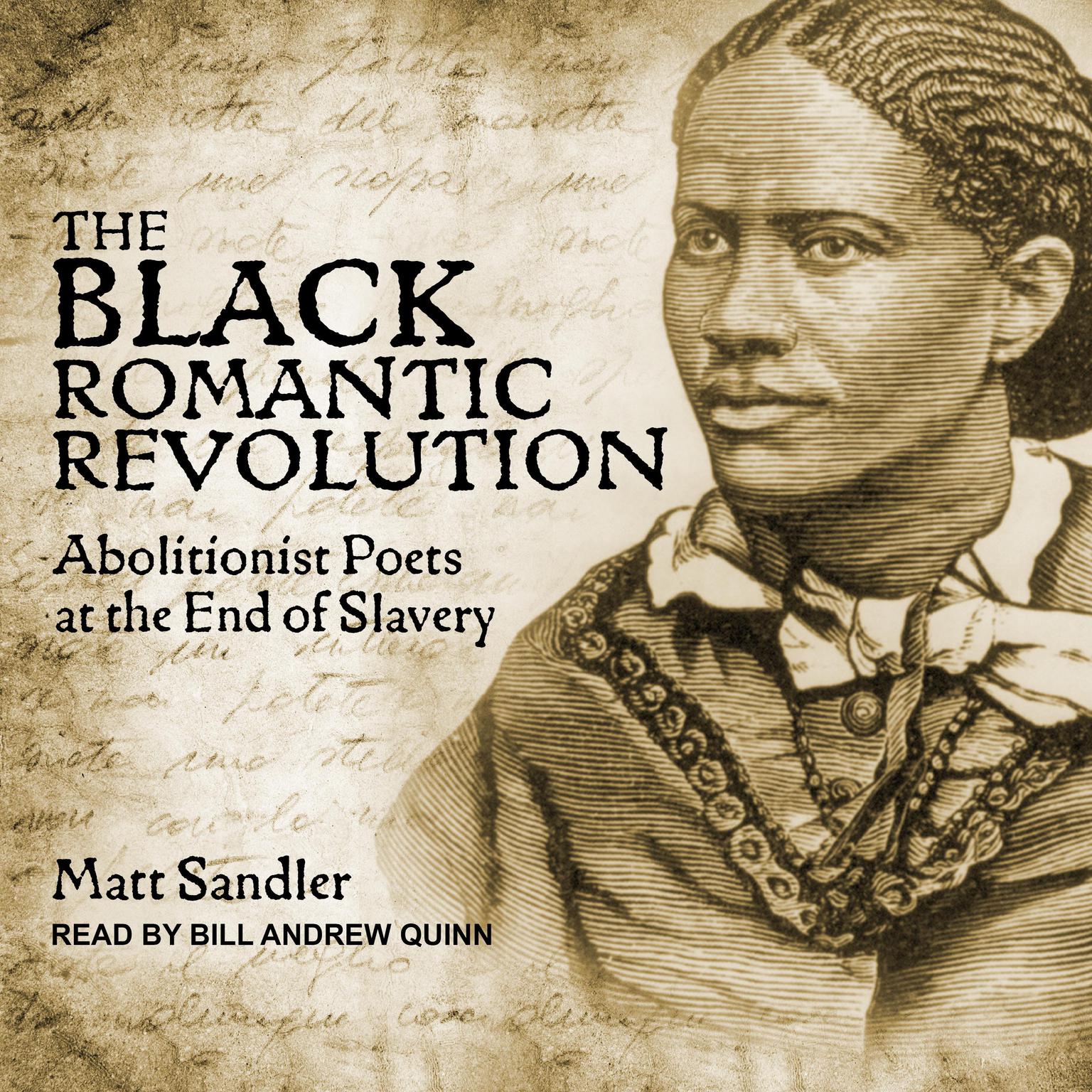 Play Audiobook Sample
Play Audiobook Sample
The Black Romantic Revolution: Abolitionist Poets at the End of Slavery Audiobook
 Play Audiobook Sample
Play Audiobook Sample
Quick Stats About this Audiobook
Total Audiobook Chapters:
Longest Chapter Length:
Shortest Chapter Length:
Average Chapter Length:
Audiobooks by this Author:
Publisher Description
The prophetic poetry of slavery and its abolition
During the pitched battle over slavery in the United States, Black writers—enslaved and free—allied themselves with the cause of abolition and used their art to advocate for emancipation and to envision the end of slavery as a world-historical moment of possibility.
These Black writers borrowed from the European tradition of Romanticism—lyric poetry, prophetic visions—to write, speak, and sing their hopes for what freedom might mean. At the same time, they voiced anxieties about the expansion of global capital and US imperial power in the aftermath of slavery. They also focused on the ramifications of slavery's sexual violence. Authors like Frances Ellen Watkins Harper, George Moses Horton, Albery Allson Whitman, and Joshua McCarter Simpson conceived the Civil War as a revolutionary upheaval on par with Europe's stormy Age of Revolutions. The Black Romantic Revolution proposes that the Black Romantics' cultural innovations have shaped Black radical culture to this day, from the blues and hip hop to Black nationalism and Black feminism. Their expressions of love and rage, grief and determination, dreams and nightmares, still echo into our present.
Download and start listening now!
The Black Romantic Revolution Listener Reviews
Be the first to write a review about this audiobook!
About Bill Andrew Quinn
Bill Andrew Quinn is a veteran in the voice-over world. In addition to hundreds of commercials and audiobooks, his many credits include work on The Sopranos, The Montel Williams Show, and Showtime at the Apollo, as well as characters for Grand Theft Auto IV and other video games. Totinos, Corona, Lincoln-Mercury, and McDonald’s are among his many television campaign clients.


